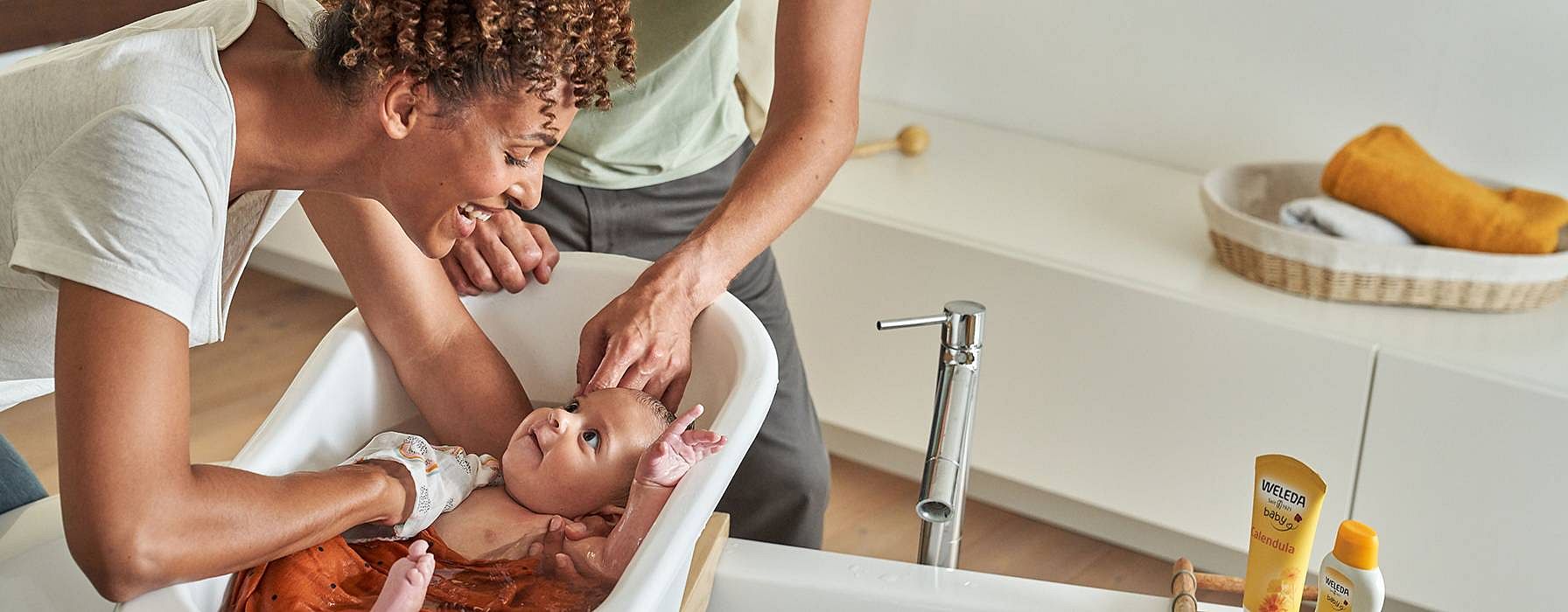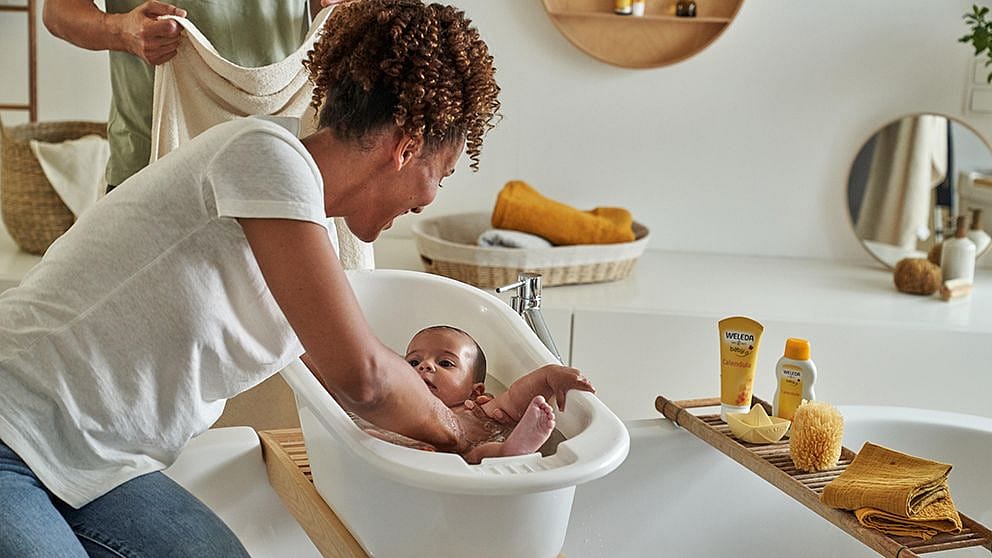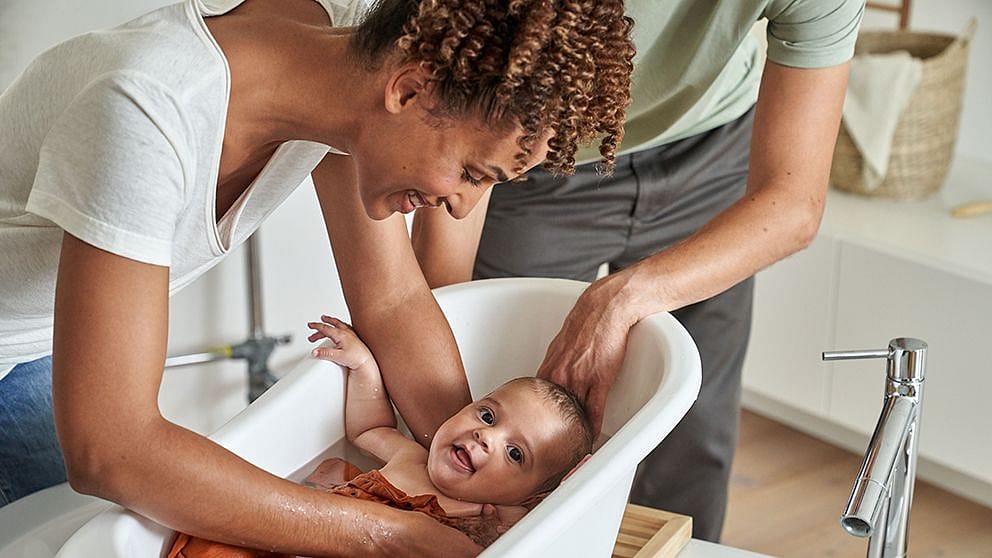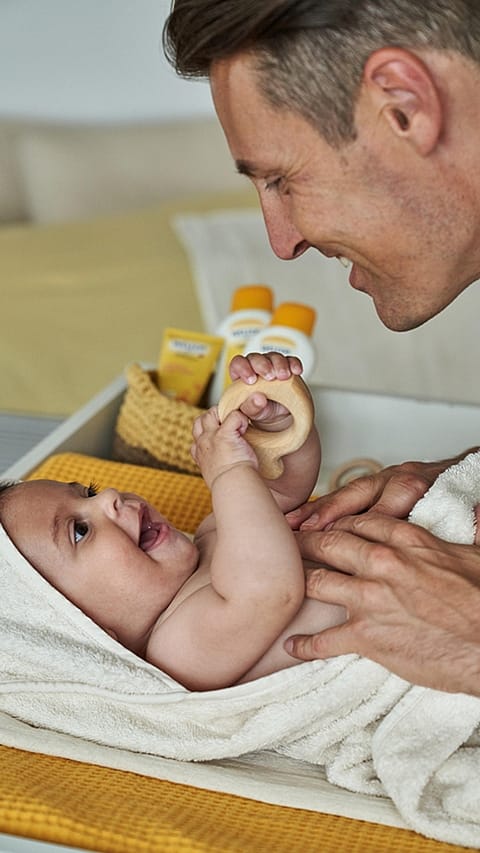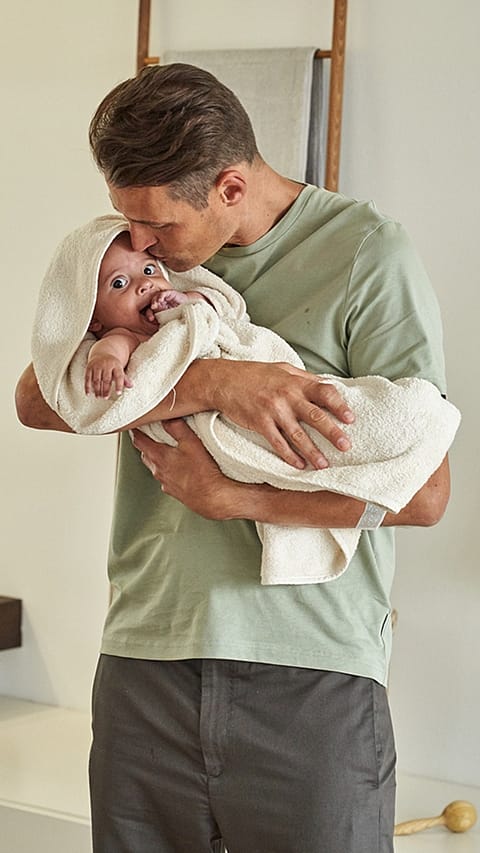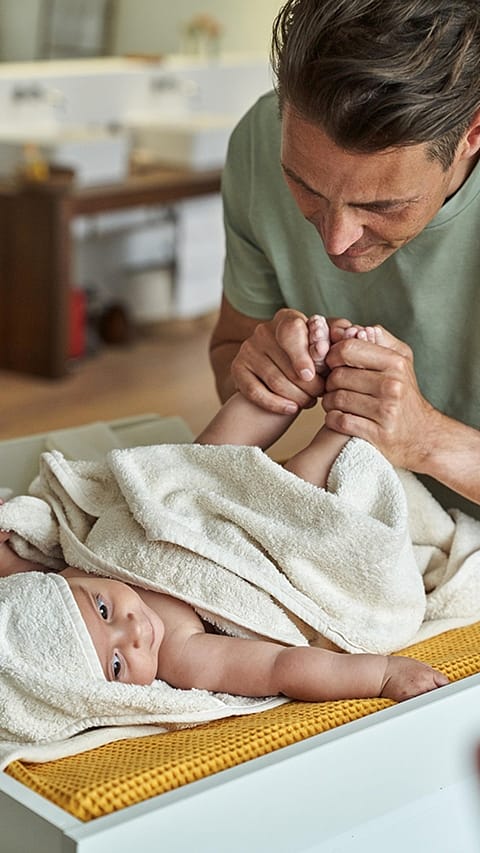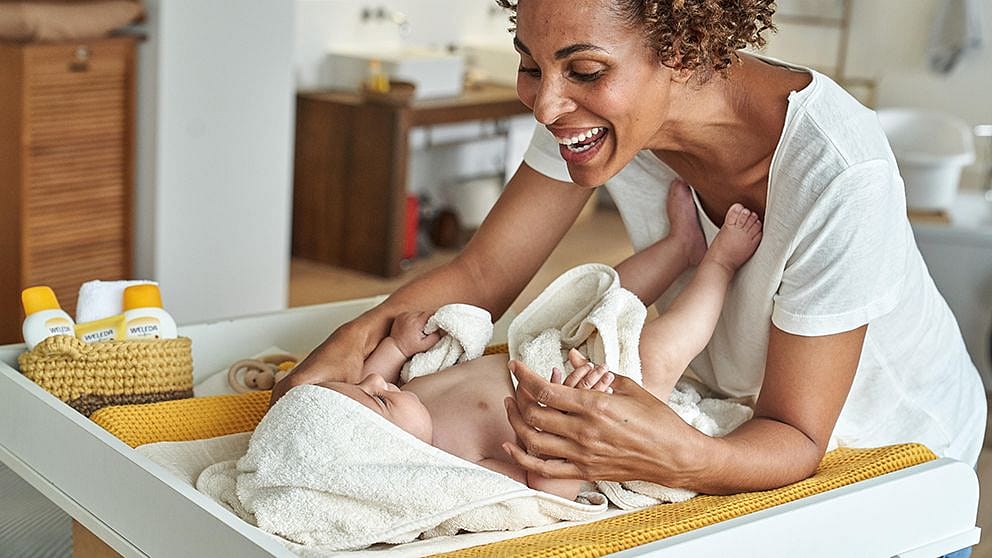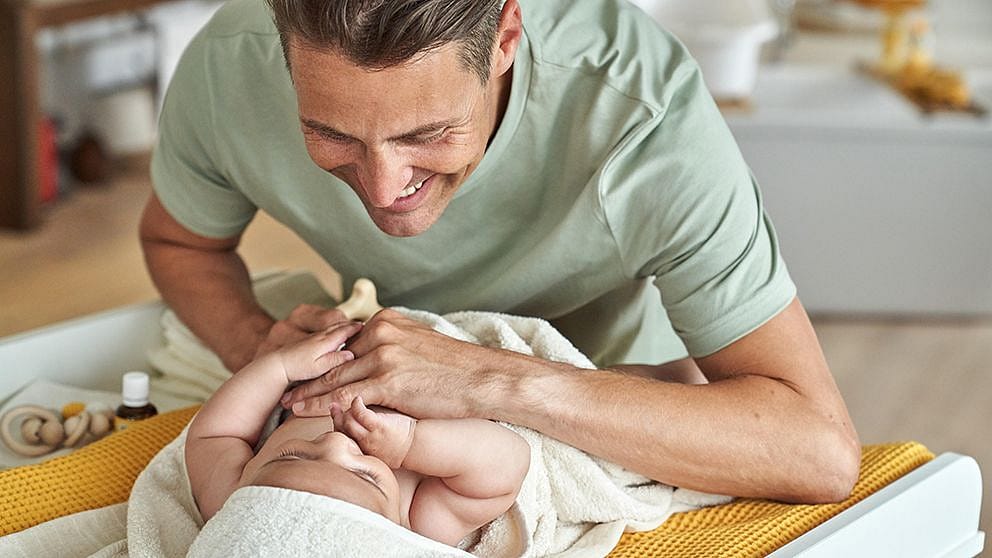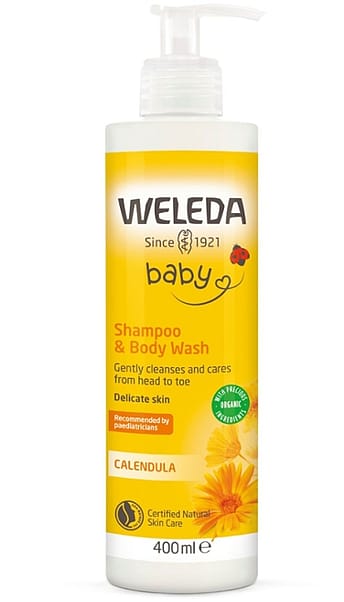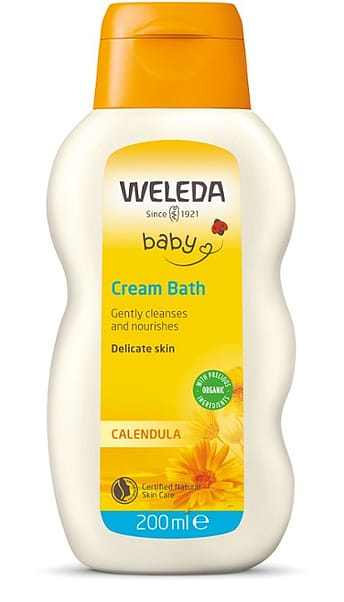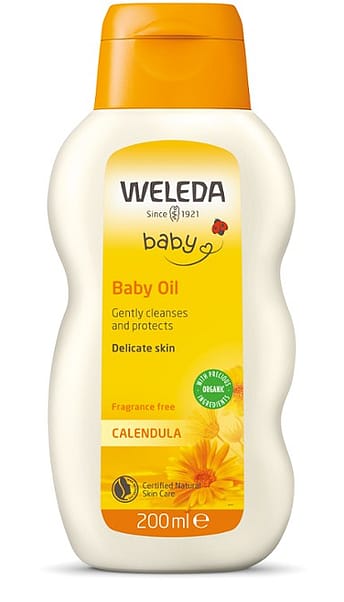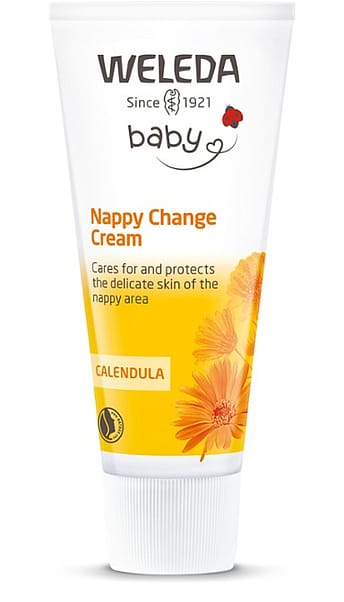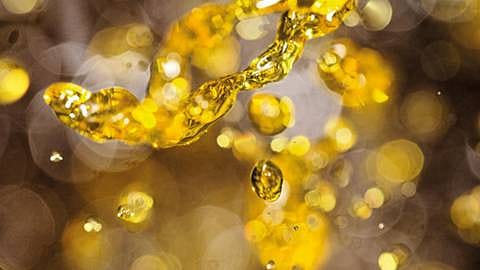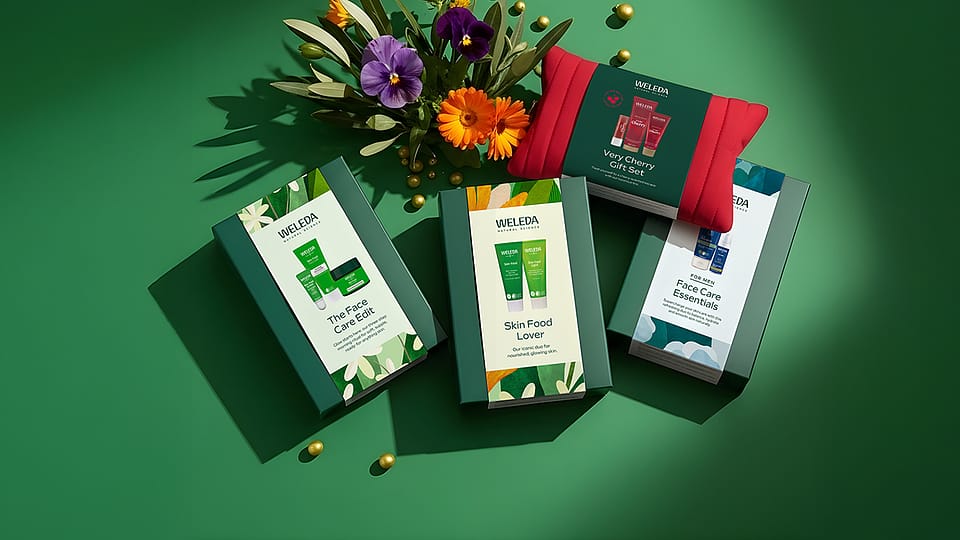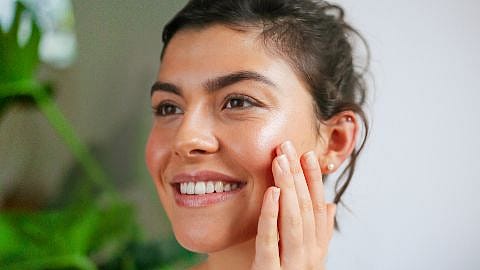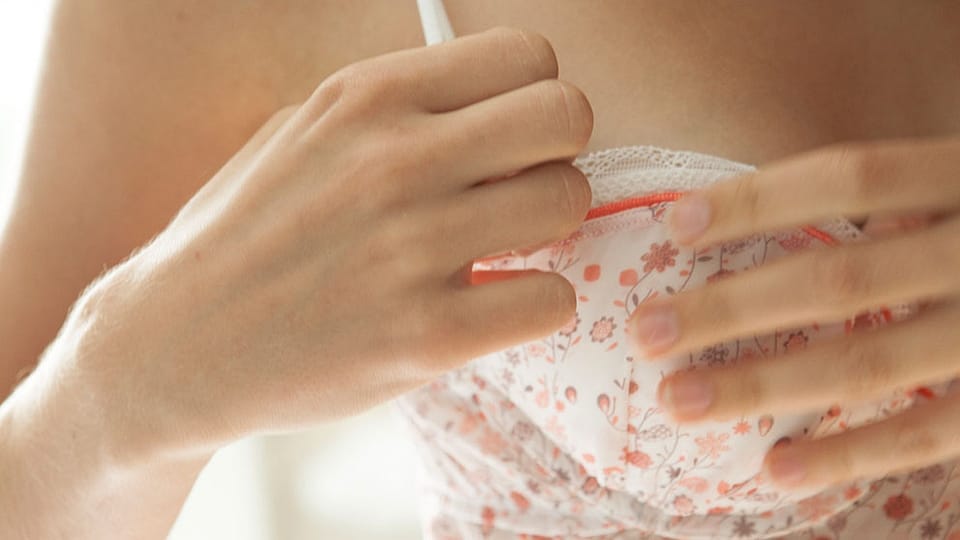Bath time bonding for babies and parents
How to make bath time a relaxing ritual
When can I start to bathe my newborn? How often should I bathe my baby? How long should a bath last? These are common questions many first-time parents and caregivers ask. Every baby reacts differently to the element of water. Bath time can be a pleasure for both baby and parents, if you keep in mind a few simple guidelines.
Bath time is family time
A bath is possible at any time and almost always beneficial. It can become a relaxing ritual for babies and toddlers alike. Bath time is an occasion for the whole family – parents and baby – to put aside everyday life and enjoy tender moments together without distraction. Baby bath time is family time. Being in the water together is an opportunity for bonding, activating the senses, gentle touch and experiencing the joy of movement. But not every baby is a fan of water.
How soon can I give my newborn a bath?
The postnatal period immediately following birth is all about bonding with your newborn. Close skin contact and a magical mix of hormones ensure that a bond develops between parents and child. In the first hour after birth, a newborn is particularly alert and soon begins to look for her mother’s breast. Bathing the infant too soon after birth interrupts the skin contact between mother and child, which can adversely affect the budding breastfeeding relationship. It can also risk leading to hypothermia, hypoglycaemia or respiratory disorders. It is therefore not recommended to bathe newborns immediately after birth. It’s enough for newborns to be carefully dried and kept warm, maintaining direct skin contact with the mother or father. This helps baby’s skin to get used to the world outside the womb.
Natural protection for baby’s delicate skin
The vernix caseosa, a wonderfully nourishing and protective layer that may still completely or partially cover the newborn’s skin, does not need to be cleaned off. Vernix is gradually absorbed by the skin and during the first days of life supplies the baby’s delicate skin with lipids and moisture, ensuring that it maintains a balanced pH level.
Dry vernix residue in the folds of the skin should be gently removed with oil after a few days to avoid irritation in those areas. After this point it’s fine to start bathing your baby. There is no need to wait for the stump of the umbilical cord to fall off. Just be sure to carefully pat the navel area dry after the bath.
When is the best time of day to bathe my baby?
Some babies are stimulated by a bath and become active, making it harder for them to sleep afterwards. In that case, it makes sense to move bath time to the morning hours or after a nap. Parents will figure out on their own when the most suitable time is to bathe their baby during the first weeks and months after birth – over time, they’ll get to know their child better and learn what is good for them and when. It can be helpful to (breast)feed your baby before bathing – hungry babies are rarely relaxed. By being held and turned around during the bath, through excitement and activity, it can happen that a baby’s full stomach “spills over” and your baby spits out some milk while bathing; don’t worry, there’s nothing wrong with that! Since bathing takes a lot of energy, many babies will want to feed again shortly after their bath.
How often should I bathe my baby?
Babies who enjoy taking a bath can be bathed frequently, but it is also fine for them to go a few days without bathing. Babies that seem to reject bathing altogether do not need to be forced. In that case, try again from time to time. Generally, by the time babies can sit up on their own, they also enjoy going into the water.
Babies who enjoy bathing can stay in the water for 3 to 10 minutes; older children can stay in longer, as they don’t cool down as quickly. The bathroom should be warm and cosy (at least 24 degrees Celsius). The initial temperature of the bath water should be 37 degrees Celsius – this can be measured using a bath thermometer, readily available at most pharmacies.
Tip for testing water temperature
The sensitive skin on your elbow can also be used to check the bath water. Simply dip your elbow deep into the water. If the water temperature feels pleasant and not too hot or cold, it will also be pleasant for your baby. Because our hands and fingers are already accustomed to higher temperatures, they are not suitable for checking the bath water temperature.
Natural Bath for Baby
It’s better to use a bath product that has been specially developed for sensitive baby skin, rather than bathing your baby in clear water. A specially formulated baby bath gently cleans the skin of nappy cream residue and excrement. Clear water alone can cause a baby’s delicate skin to dry out. It is not advisable to use foam baths. It’s best to use a mild bath such as Calendula Cream Bath, which contains nourishing substances (such as almond oil) and skin-soothing active ingredients (such as calendula and chamomile). For babies with very dry skin, a small amount of Calendula Baby Oil (Fragrance Free) can be added to the bath water. Bear in mind this may take some practice because the oil in the bath coats the skin, making it somewhat slippery.
Should I use a baby bathtub?
Practical baby bathtubs made of light plastic with a drain plug on the bottom are available on the market; it’s also easy to bathe your newborn in a clean sink. Avoid the use of bath cushions and seats or floating rings. Not only do they prevent intensive skin contact between parent and baby, but their use might make it tempting to leave the baby unattended, even if only for a moment. The element of water feels strange to many infants, who are not accustomed to the sense of buoyancy and almost boundless freedom of movement. To be gently guided and lovingly supported in the bath by a parent or caregiver gives babies a feeling of security while they learn to enjoy this new element. A pleasant bathing experience together can strengthen the bond between parents and child.
After bathing
After a bath, babies and toddlers should be wrapped and thoroughly dried gently but quickly, preferably with a soft, fluffy pre-warmed terry towel. If there is no heater nearby, the towel can be pre-warmed on the parent’s own body. Calendula Baby Oil (Fragrance Free) nurtures and protects your baby’s sensitive skin and can be applied during a soothing massage. Afterwards, Calendula Nappy Change Cream can be applied to the nappy area.
Does your baby cry after taking a bath? There are many possible reasons why:
- Was she startled by the abrupt end to the pleasant feeling of weightlessness, or the sudden change from warm bath water back to the cooler indoor air? Perhaps she was just about to relax and became irritated by being dried off and dressed.
- Or maybe the bath sparked her appetite. Taking a bath is exciting and even exhausting, and as a result your baby might demand closeness, warmth, a feeling of security and a meal.
- Feeding your baby, giving her plenty of skin contact, and warming her with your body and a towel or blanket are ways to calm and satisfy these needs.
- Afterwards, it’s time for skin care and getting dressed – preferably in clothes that do not smell too strongly of detergent.
Swimming in winter and summer
When it’s cold outside, a freshly bathed baby should not be immediately exposed to the winter air. A child’s body and hair must first be completely dry to prevent excess moisture from evaporating and body heat from escaping. A cap will prevent the head from giving off too much heat. Even if adults feel warm or hot outside, a baby can easily catch a chill, especially when their skin is wet and a mild breeze is blowing. Both factors quickly remove heat from a young child. Therefore caution is advised when bathing outdoors.
A visit to an open-air bath in summer is better suited to older babies who can already sit up independently in the bathtub. When visiting an outdoor swimming pool with your little ones, ensure that they do not become too cold and protect their wet head and body from the wind. And under no circumstances should a baby be exposed to direct sunlight. Once these precautions are taken, splashing summer fun can begin – always under the parents’ attentive eyes.
